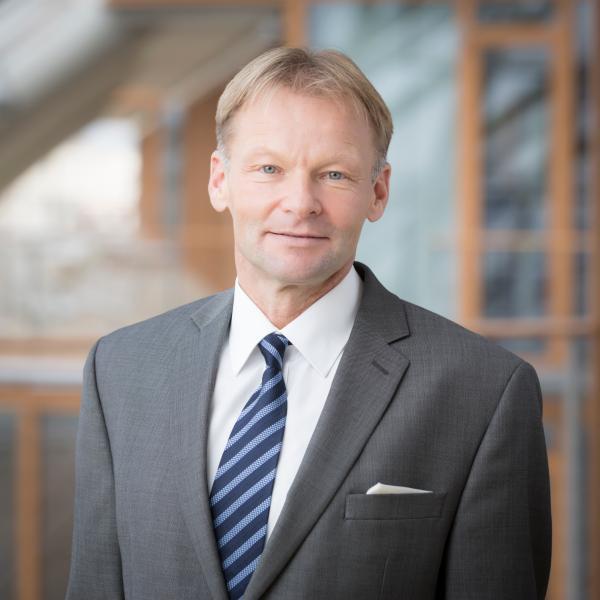
Vazil Hudák, Vice-President of the EIB
EIB Vice-President Vazil Hudák joined two events dedicated to resilient and smart cities, organised in the framework of the 2018 WBG/IMF Spring Meetings.
The World Bank Group ‘Resilience Dialogue - The Future of Resilience: Banking on Cities’ and the Atlantic Council ‘Smart Cities, Smart Investment, Bright Future? Europe’s Mission to Innovate’ events debated how cities can better access and use financing for investments in resilience, and discussed the role that private sector investors can play.
Cities are more attractive than ever: OECD projections indicate that 85% of the global population will live in cities by 2100, up from 50% today. They concentrate most jobs, businesses and higher education facilities, but have also become home to major problems of social cohesion and environmental sustainability. As people become more concentrated, so does their exposure to disaster and climate risk, making investment in resilience more important than ever.
EIB Vice-President Hudák shared the EU Bank’s knowledge and experience with decision-makers to help cities and regions better access funds and use them more effectively. He presented some of the Bank’s supported activities in urban areas, aiming at tackling challenges related to climate change impacts, public transport inefficiencies and water shortages.
Highlighting the strategic role that the International Financial Institutions can play in supporting smart and resilient cities, EIB Vice-President Hudák said: “Projects implemented by the EIB focus on areas of the economy where investment is lacking. That’s our fundamental role – to address the market gaps, to leverage and crowd in private sector investors to support urban investments, making cities resilient in particular”. “Today, investing in resilient and sustainable urban development is therefore "a must" for most countries and their respective governments”, he added.
Finally, Vazil Hudák outlined the importance of international collaboration to address the resilient cities’ needs: “We consider our partnership with the Global Covenant Mayors to develop what has been announced by EU Vice-President Šefčovič in the One Planet Summit last December in Paris: “global URBIS”– a dedicated advisory window to bridge the urban financing gap as well as the financing and advising Resilient cities of the Rockefeller foundation under its 100 Resilient Cities initiative, just to name two of our partners, as key”, he said.
The EIB has lent about EUR 149 billion for urban development over the last seven years (2011-2017), out of this, about EUR 134 billion have been to EU member states, and EUR 15 billion outside the EU. Targeting the commitment to climate mitigation and adaptation under our urban financing is about EUR 44 billion – about 30 percent. EIB also contributes to the Urban Agenda through its advisory services, in particular the JASPERS, URBIS or ELENA programmes.